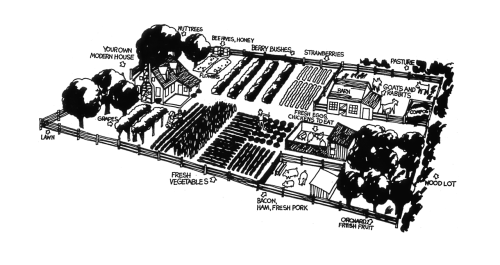Six Talking Points To Use When Debunking The Myth That Overpopulation Is The Root Of The Environmental

Six talking points to use when debunking the myth that overpopulation is the root of the environmental crisis:
1. Rates of population growth are declining: Between 1950 and 2000, the world population grew at a rate of 1.76%. However, between 2000 and 2050, the rate of growth is expected to decline to 0.77%.
2. Overpopulation is defined by numbers of people, not their behaviors: Industrialized countries, who make up only 20% of the world’s population, are responsible for 80% of the carbon dioxide build-up in the atmosphere. The United States is the worst offender, with 20 tons of carbon emission per person. Therefore, it is not the amount of people that leads to degradation, but what they are doing. Permaculture design illustrates how humans can have a positive impact on the health of our ecosystems, bringing greater health and equity.
3. Overpopulation justifies the scapegoating and human rights violations of poor people, women, people of color, and immigrant communities: Often times the subtext of “too many people” translates to too many poor people, people of color, and immigrants. This idea has been used to justify such practices as the forced sterilization of 35% of women of childbearing age in 1970′s Puerto Rico, under the control of and with funding from the US government. This is a human and reproductive rights violation.
4. Overpopulation points the finger at individuals, not systems: This lets the real culprits off the hook. When we look at the true causes of environmental destruction and poverty, it is often social, political and economic systems, not individuals. We see militaries and the toxic legacy of war, corrupt governments, and a capitalist economic system that puts profit over people and the environment.
5. Supports a degenerative mental model of scarcity: Much of this ideology was created by Thomas Robert Malthus, an 19th century English scholar. Malthus gave us the erroneous idea that the reason there is famine is because there are too many mouths to feed. This hides the reality that we have a distribution problem, not a scarcity problem. Malthus’s work has been used as the philosophical bedrock to justify many human rights violations throughout history.
6. Focusing on overpopulation prevents us from creating effective solutions and building movements for collective self determination: Permaculture teaches us that how we define a problem determines how we design solutions. How does viewing overpopulation as a root problem impact the way we think of and design solutions? What would solutions look like if we viewed people, all people, as an asset? The myth of overpopulation has lead to solutions of population control and fertility treatments, rather than overall health care and women’s rights. The more we blame humans and think we are bad and evil, the harder it is to believe in ourselves, count on each other, and build a collective movement for justice and self determination.
More Posts from Copperfingertips and Others




Fall Arrangement Flowers
Why do my interests in canning, couponing, and homesteading overlap so often with blogs with titles like ‘The Obedient Housewife’?
sewing is one of those skills everyone with the ability should know IMO. i’ve known too many people who just throw out perfectly servicable clothing and bedding because of tears or buttons that have fallen off and these can be fixed at home. sewing’s not hard either.
fucked up how cooking and baking from scratch is viewed as a luxury…..like baking a loaf of bread or whatever is seen as something that only people with money/time can do. I’m not sure why capitalism decided to sell us the idea that we can’t make our own damn food bc it’s a special expensive thing that’s exclusive to wealthy retirees but it’s stupid as hell and it makes me angry

Kiki´s garden greenhouse
(just realised I never posted this on tumblr heh sorry)
this will be available as a square print later!
I haven’t even read any communist stuff my ideology is “share and be nice” like the first two rules of a kindergarten


High End landscape architecture for a mixed-use complex features organic-shaped wooden footbridge | Singapore See the full project http://bit.ly/1H42HSO

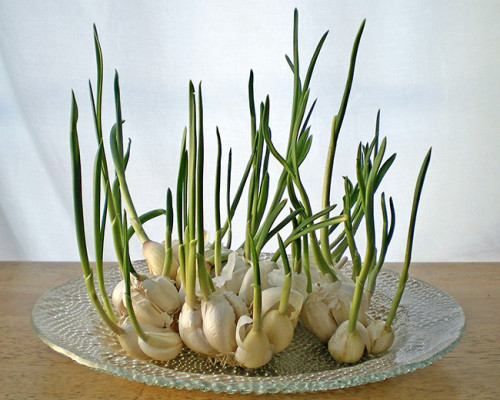


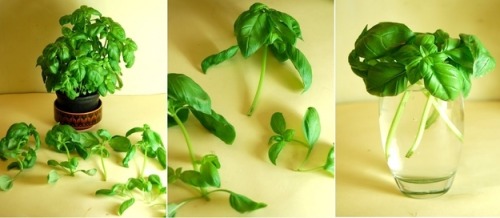

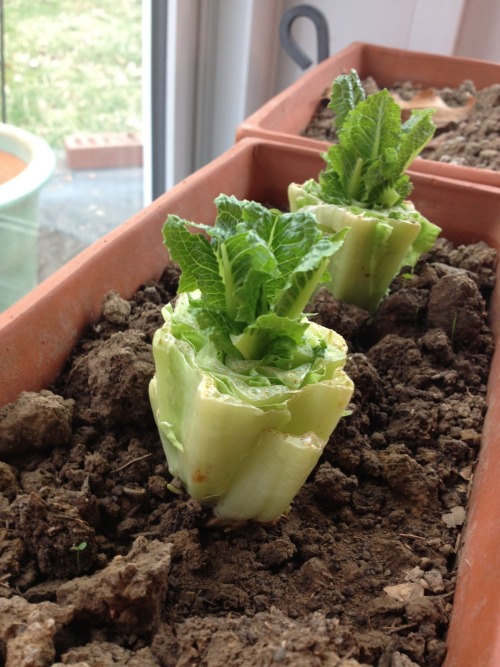
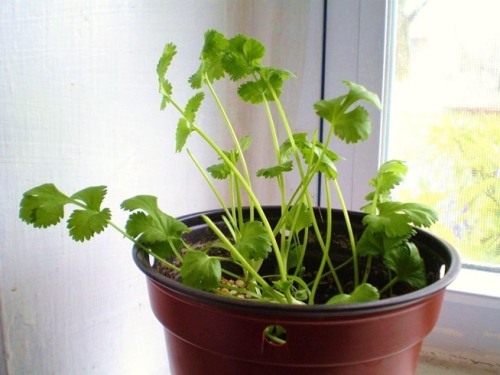
8 vegetables that you can regrow again and again.
Scallions
You can regrow scallions by leaving an inch attached to the roots and place them in a small glass with a little water in a well-lit room.
Garlic
When garlic begins to sprout, you can put them in a glass with a little water and grow garlic sprouts. The sprouts have a mild flavor than garlic and can be added to salads, pasta and other dishes.
Bok Choy
Bok choy can be regrown by placing the root end in water in a well-lit area. In 1-2 weeks , you can transplant it to a pot with soil and grow a full new head.
Carrots
Put carrot tops in a dish with a little water. Set the dish in a well-lit room or a window sill. You’ll have carrot tops to use in salads.
Basil
Put clippings from basil with 3 to 4-inch stems in a glass of water and place it in direct sunlight. When the roots are about 2 inches long, plant them in pots to and in time it will grow a full basil plant.
Celery
Cut off the base of the celery and place it in a saucer or shallow bowl of warm water in the sun. Leaves will begin to thicken and grow in the middle of the base, then transfer the celery to soil.
Romaine Lettuce
Put romaine lettuce stumps in a ½ inch of water. Re-water to keep water level at ½ inch. After a few days, roots and new leaves will appear and you can transplant it into soil.
Cilantro
The stems of cilantro will grown when placed in a glass of water. Once the roots are long enough, plant them in a pot in a well-lit room. You will have a full plant in a few months.
-
 bobthebenevolentpirate liked this · 4 weeks ago
bobthebenevolentpirate liked this · 4 weeks ago -
 boy-defined reblogged this · 5 months ago
boy-defined reblogged this · 5 months ago -
 sleebyshiba liked this · 6 months ago
sleebyshiba liked this · 6 months ago -
 urbestamericangirl444 liked this · 6 months ago
urbestamericangirl444 liked this · 6 months ago -
 art-of-imaginations liked this · 6 months ago
art-of-imaginations liked this · 6 months ago -
 boy-defined liked this · 6 months ago
boy-defined liked this · 6 months ago -
 romanticisation liked this · 6 months ago
romanticisation liked this · 6 months ago -
 mossballshell liked this · 6 months ago
mossballshell liked this · 6 months ago -
 bizarreshark reblogged this · 6 months ago
bizarreshark reblogged this · 6 months ago -
 amythmoth reblogged this · 6 months ago
amythmoth reblogged this · 6 months ago -
 wizardkoolkelpie liked this · 6 months ago
wizardkoolkelpie liked this · 6 months ago -
 doomhope reblogged this · 6 months ago
doomhope reblogged this · 6 months ago -
 gretheresa reblogged this · 1 year ago
gretheresa reblogged this · 1 year ago -
 gretheresa liked this · 1 year ago
gretheresa liked this · 1 year ago -
 elysean liked this · 1 year ago
elysean liked this · 1 year ago -
 johnthesnootle liked this · 1 year ago
johnthesnootle liked this · 1 year ago -
 dexadrone liked this · 1 year ago
dexadrone liked this · 1 year ago -
 chancellorcannoli reblogged this · 1 year ago
chancellorcannoli reblogged this · 1 year ago -
 seaminoriswriting liked this · 1 year ago
seaminoriswriting liked this · 1 year ago -
 monitorchakas liked this · 1 year ago
monitorchakas liked this · 1 year ago -
 qveeraskvlt liked this · 1 year ago
qveeraskvlt liked this · 1 year ago -
 centergad reblogged this · 1 year ago
centergad reblogged this · 1 year ago -
 coneyinacap reblogged this · 1 year ago
coneyinacap reblogged this · 1 year ago -
 coneyinacap liked this · 1 year ago
coneyinacap liked this · 1 year ago -
 pixelpriestess liked this · 1 year ago
pixelpriestess liked this · 1 year ago -
 garbagevalue reblogged this · 1 year ago
garbagevalue reblogged this · 1 year ago -
 rezgolepcsofok liked this · 1 year ago
rezgolepcsofok liked this · 1 year ago -
 purulens-kopet reblogged this · 1 year ago
purulens-kopet reblogged this · 1 year ago -
 anarchist-caravan reblogged this · 1 year ago
anarchist-caravan reblogged this · 1 year ago -
 colddarkcreators liked this · 2 years ago
colddarkcreators liked this · 2 years ago -
 ill-d0-it-later reblogged this · 2 years ago
ill-d0-it-later reblogged this · 2 years ago -
 merrybiscuit reblogged this · 2 years ago
merrybiscuit reblogged this · 2 years ago -
 intergalacticcircus liked this · 2 years ago
intergalacticcircus liked this · 2 years ago -
 668289595uejwn7285839jdjwnxjv reblogged this · 2 years ago
668289595uejwn7285839jdjwnxjv reblogged this · 2 years ago -
 honeycombess reblogged this · 2 years ago
honeycombess reblogged this · 2 years ago -
 honeycombess liked this · 2 years ago
honeycombess liked this · 2 years ago -
 sunnshinneee reblogged this · 2 years ago
sunnshinneee reblogged this · 2 years ago -
 nunyo-bizznez liked this · 2 years ago
nunyo-bizznez liked this · 2 years ago -
 spookysshadow reblogged this · 2 years ago
spookysshadow reblogged this · 2 years ago -
 spookysshadow liked this · 2 years ago
spookysshadow liked this · 2 years ago
